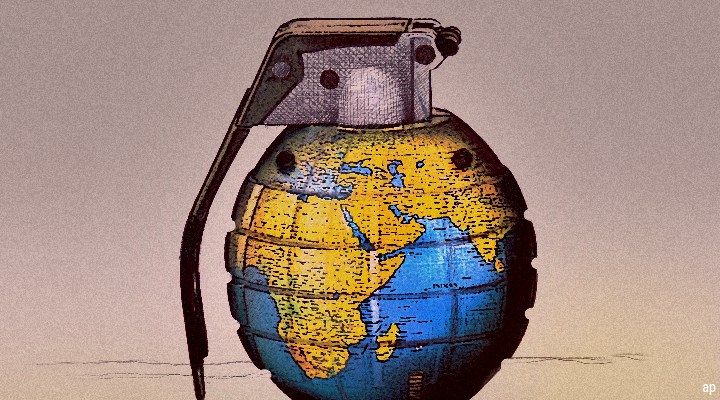
Only 1% of all water is actually drinkable, according to the UN's Food and Agriculture Organization (FAO). And yet, we tend to treat water as thought it were an infinite resource, with massive quantities literally being flushed down the pipes every day.
Consider the numbers: according to some research, a typical shower lasting around 10 minutes requires around 100 litres of water and about 5 kilowatts of energy to heat the water to body temperature. If we assume we spend one or two of those 10 minutes using body washing products and shampoo, that leaves eight minutes — or 80 litres — of reusable water wasted.
This wastefulness gets even worst when considering that vast swathes of the world population are still in need of water. According to 2020 research by Unesco, worldwide 3.6 billion people — nearly half the global population — live in areas that experience water scarcity at least one month each year. That figure could reach 5.7 billion by 2050.
But what does that mean for investors?
Investing in water
The management of water services represents a major challenge for future generations, but it is also an opportunity for investors. “The main thesis underlying an investment in global water equities revolves around the scarcity of fresh water as a commodity”, says Kenneth Lamont, analyst at Morningstar. “Over recent year,s demand for fresh water has increased at more than twice the rate of global population growth, leading to dramatic predictions of future shortfalls between supply and demand”.
Additionally, fresh water’s resources are not evenly distributed across the globe. Even highly developed regions such as California, are not immune to crippling shortages, Lamont points out. And this is likely to provide an increasing number of opportunities for companies involved in the treatment and distribution of water globally.
The coronavirus pandemic has also led to greater attention on environmental issues and water is something investors are increasingly cocnerned about. The Morningstar category Sector Equity Water year to date (until March 11) gained more than 6%, placing itself in second place after the Sector equity Agricultural segment and well ahead of Sector Equity Ecology and Sector Equity Alternative energies. The picture was quite different in 2020 and the previous years.
Don't Forget About Food
The issue of water is closely linked with agriculture too, if you consider its intensive use in food production. According to the Water Footprint Network, producing 1kg of apples requires 822 litres of water. A kilogram of coffee requires 18,900 litres.
The food issue becomes more complex if we consider the increase in food prices. According to a February report by the FAO, prices had increased for nine consecutive months. The FAO’s Price Index (which tracks monthly changes in the international prices of commonly traded food commodities) recorded an average of 116.0 points in February, 2.4% more than the previous month.
Of course, the environmental pollution factor should not be underestimated when thinking about food. According to the United Nations, livestock accounts for about 14% of global greenhouse gas emissions. Reducing the consumption of meat - with a simultaneous decrease in intensive farming - could therefore make a difference in the slowdown of climate change.
New eating habits such as Veganism or "Flexitarianism" that are taking root seem to go in the right direction. Consumers' preference for healthier and more sustainable sources of nutrition is growing. According to a study by the research firm MarketsandMarkets, the global plant-based meat market, which was worth $4.3 billion in 2020, will grow nearly 15% annually through 2025. “The uptick in demand for vegan and vegetarian products is yet more evidence of the generation wealth flip as millennial consumers shift demand paradigms." says Elizabeth Stuart, ESG analyst at Morningstar.
To meet the growing interest of the markets for this transformation, a series of investment funds are being created. These investment vehicles target those companies (which some define as" smart food") whose goal is to offer products or solutions that contribute to positive environmental and social results along the entire food supply chain.
There are relatively few funds focused on water and agriculture available to Morningstar investors, though the theme is present in many sustainable fund portfolios. Below are those which have a Morningstar rating and a track record of at least three years.








:quality(80)/cloudfront-us-east-1.images.arcpublishing.com/morningstar/JPJHXR5CGSNR4LKQF5ZKLCCVYQ.png)












